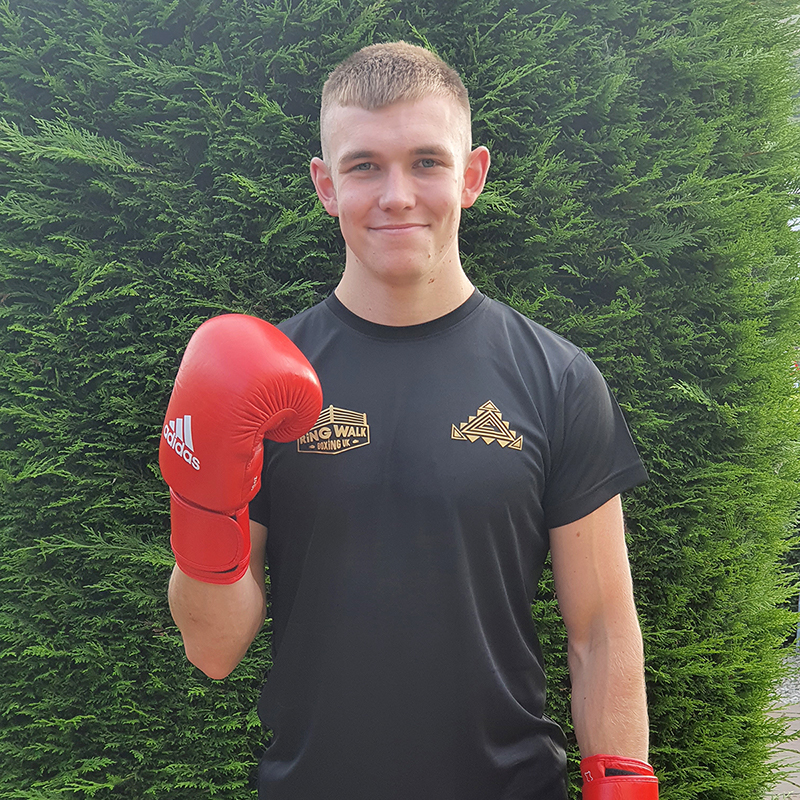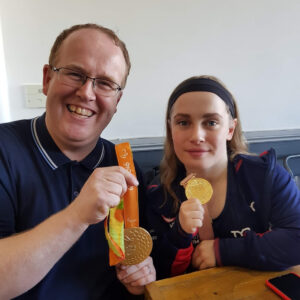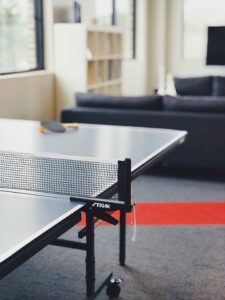Rhys McCole: Learning is everything

Boxing has produced some of the most iconic names, lucrative agreements, and underdog stories in world sport, making it a regular success in the film and entertainment industry throughout the last century.
While the lowland council area of Inverclyde – one of the most deprived places in Scotland – may be a far cry from the glitz and glamour of the Hollywood Hills, it is home to an amateur boxing star whose story would instantly become a box office hit.
Rhys McCole is a 19-year-old who has found power and strength within his neurodiversity and physical disabilities to become a national champion, as well as the UK’s first mainstream para-disabled boxer.
Despite his age, Rhys has more medals and awards than his welterweight frame could carry, as a thrice Scottish Open champion, former Inverclyde Sports Personality of the Year and Young Scot Award finalist to name just a few of his accolades, as well as a Year of Young People ambassador in 2018 and a European ambassador for Fighting for Autism.
The story of this young protagonist began a decade ago, long before his first taste of silverware in the Western District finals, when a bright-eyed and bushy-tailed schoolboy was overcome by curiosity.
“I live just around the corner from the local club,” said Rhys. “When I was a wee boy and walked past it, there were no windows so we couldn’t see inside, but I used to hear different noises: a bell ringing, people hitting bags, and because of my autism and sensory issues, it used to draw me in.
“I asked, ‘Mum, what’s in the building?’ And I then found out that it was a boxing club and that’s how it began. When I was nine, I was too young to start, so I went back when I was 10 and instantly took to it.
“I enjoy boxing now as much as I did back then. Even when I am 90, I will still love it just as much.
“As I grew older and became a teenager, I have appreciated it a lot more – even just having my first fight was more than I ever thought I would be able to do.”
“People with autism, like myself, we look at the world in a different way, so it can be quite useful to get an alternative perspective on certain things.”
Rhys McCole
Over the last five months, nothing but an eerie, uncharacteristic silence would have come from that very gym, but Rhys spoke fondly of getting back to boxing, which is more than just an average hobby.
“The routine really appeals to me because, when I go into training, I know all the things that are going to happen. For myself and others who have autism, a good structure and routine is really beneficial for us.
“I’m boxing most days as well as fitting in strength and conditioning and running, to make sure that when I am fighting, I’m in as good a physical condition as I can be, and sharp tactically and technically.
“Boxing is also quite physically demanding, so I can sleep at night, but it isn’t the mean, brutal sport that it’s made out to be, because loads of people go to a boxing gym just to train. They never fight or compete, and that’s absolutely fine.
“For people with autism, it is something that I would encourage them to try; boxing has done so much for me and helped me in so many ways.
“They might try it once and hate it, but at least they have had a go. Or they might try it once and love it as much as I did, but if they never try, they will never know.
“My ambition is to keep training hard and to continue improving. I want to promote the sport and get as many people involved with it as I can.”
For Rhys and many others who have taken up this advice, pursuing boxing at an amateur level was purely for enjoyment. But like with many sports, it boasts some key learning points that can improve everyday life.
“When preparing for a fight, it’s about staying relaxed; it’s so easy to get yourself worked up and nervous to the point whereby the time you get into the ring you don’t have energy left.
“It’s a good transferrable skill for myself with autism. You can get yourself worked up by silly things, and it’s the same principle as getting ready to box: take a deep breath and calm yourself down.
“Something all teenagers can relate to is sitting exams. It can be really stressful for everyone and I remember getting myself uptight before my first exam, but I was able to say, ‘this isn’t any different to getting ready for boxing; I just need to take a minute away from the room, deep breaths, calm myself down and I can re-join the group.’ And that’s it.”
Since leaving School, Rhys has secured a full-time business administration apprenticeship with the Inverclyde Council. In addition to his boxing, he makes time to support the Inch by Inch campaign that aims to tackle obesity in the local area.
“I love helping out as much as I can because I see how many fantastic people there are [in Inverclyde],” added Rhys. “All they need is a chance and they’ll flourish.
“People with autism, like myself, look at the world in a different way, so it can be quite useful to get an alternative perspective on certain things.
“It also motivates me to push further and achieve as much as I can. Everyone wants to do their best and I am not prepared to let anything hold me back.
“I lost my very first fight, which for anyone, particularly for a young kid, is really tough. But I re-watched the fight and saw what I did well and what I did wrong and took it from there.
“I’m quite a positive person, so in anything that hasn’t gone my way in terms of defeats, I’ve not lost, but learnt from them. Being so young, it is all about learning.
“There has never been anything that made me want to quit, or give in, or anything like that – it’s just not who I am.
“If you are competing at the highest level of your sport, there is an element of failure, but you are still going to learn. And if you learn something from every experience, then you have never truly failed.”


